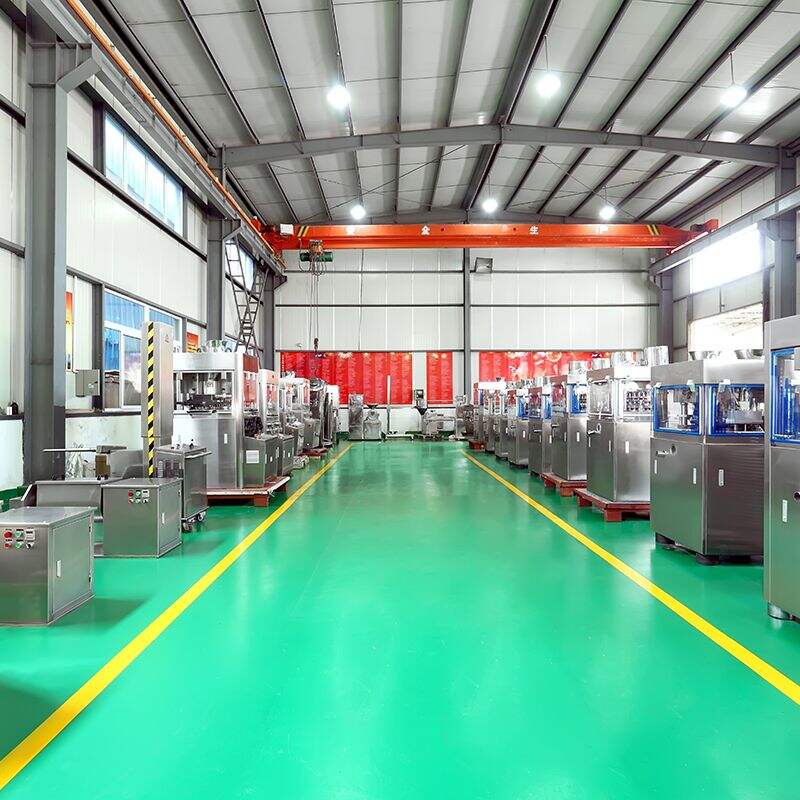In recent years, with the continuous advancement of China’s modern industry, the pharmaceutical industry has played an increasingly important role in China’s industry. Correspondingly, the pharmaceutical machinery industry has developed rapidly, but there is still a big gap compared with foreign countries.
Reportedly, the tablet press is commonly used in the production of solid preparations, which puts particles or powder materials in the mold holes and presses them into tablets by punch. Tablet press and tableting technology are common and important in the pharmaceutical preparation industry. Even in the 21st century, new tablet press and tableting technology come out all the time.
Tablet press is a pharmaceutical device with a long history of production in China, early export and large output. It is an indisputable that tablet manufacturers in China rank first in the world in terms of the number, varieties, specifications and output of tablet presses. However, China’s tablet press is technologically backward, and insufficient in technological innovation. Although new products are launched every year, there are few products with high technological level and high added value.
Learned from the analysis made by some in the industry, the majority of enterprises in China is private enterprises and has no advantages in technology, equipment, talent, and other aspects, seriously restricting their technological innovation. Some enterprises suffer from a lack of research and development institutions, inadequate innovation system, technical personnel with poor technical innovation awareness, weak technical strength, and slow updating of scientific R&D and production technologies and equipment. What should be of concern is that there is a temporary shortage of scientific and technological talents in the entire industry. In other words, the talent crisis is spreading throughout the industry.
For a long time, there is a significant gap with advanced tablet presses and technologies abroad due to weak basic research, scarcity of talents and incomplete innovation mechanism. In recent years, further achievements have been made in the development of foreign tablet presses. Airtightness, modularity, automation, scale and advanced online testing technology will be principally concerned in the development of tablet press technologies, and the tablet press will be towards the perfect production progress.
At present, the technical development of tablet press in foreign countries is aimed principally at intelligence, flexibility, precision, and compliance with cGMP. Advanced technologies have been applied to the tablet presses increasingly, including automation technology integrating machine, gas, liquid, light and magnet, numerical control technology, sensor technology, and new material technology. It is known that the majority of the advanced tablet presses come from Europe and the United States, such as FETTE and KORSCH in Germany, MANESTY in the UK, COURTOY in Belgium, STOKES in the United States. Their products are highly automatic and in line with the requirements of FDA and 21CFRPART11.
The inlet and outlet of foreign tablet presses are sealed very well to minimize cross contamination as much as possible. The particles to be pressed into tablets enter the hopper through the closed barrel and the closed conveying system. Effective measures are taken to prevent dust flying and particle layering in the tableting process. The pressed tablets can be packaged only after screening, in-tablet inspection, metal detection, etc. The whole process is quite airtight.
However, most of the domestic tablet presses are open or not completely closed in the pressing process, resulting in dust flying among the tablets when they are cut. With the further implementation of GMP, it gets more important to make the tableting process airtight and separate the personnel flow from the materials flow, which is the basic function of the manufacturing equipment we design and produce.
Remote monitoring and diagnosis technologies for devices are also increasingly emerging with the rapid development of advanced computer technologies such as network, broadband network, and virtualization. Computer-controlled tablet presses have been widely used in pharmaceutical factories, making the remote monitoring and diagnosis technologies become a real boon. At present, advanced tablet presses in foreign developed countries generally function remote monitoring and remote diagnosis. A remote monitoring and diagnosis system developed for the tablet press can actualize real-time troubleshooting, greatly improving the after-sales service response capability and speed of the tablet press manufacturers, and also increasing their economic benefits.
The gap between China and foreign developed countries in tablet press and tableting technology is still widening. In foreign countries, the development of tablet press technologies focuses on high speed, high production, airtightness, modularity, automation, scale, and advanced testing technology. In order to catch up with and surpass foreign countries in terms of speed and output, significant progress should be made in the design innovation, processing technology and automatic control for domestic tablet presses. In conclusion, it is a heavy responsibility to develop the table press industry in China, so we still need to make continuous efforts.
